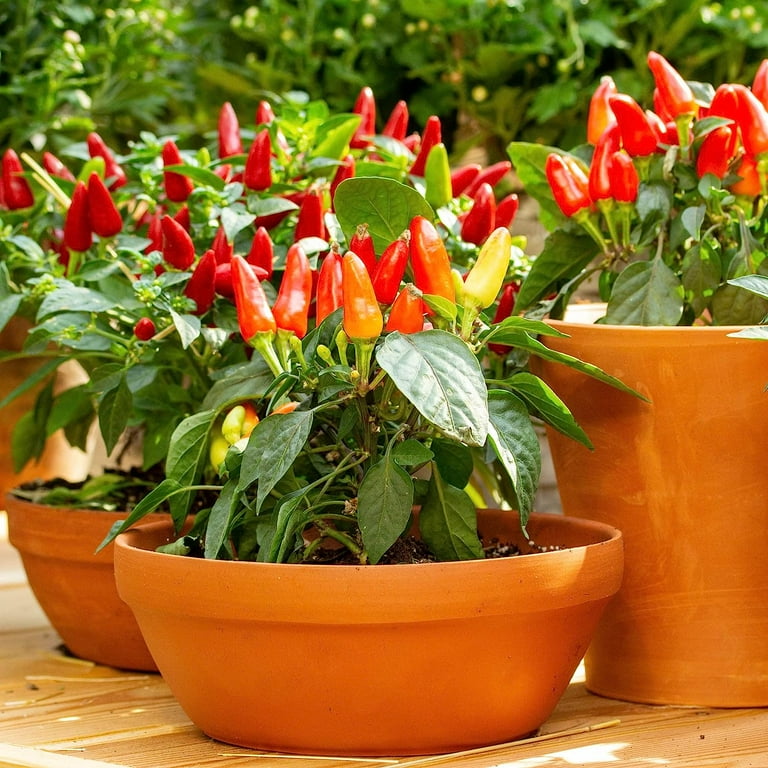Best Fertilizers for Peppers: Maximize Plant Health and Return
Best Fertilizers for Peppers: Maximize Plant Health and Return
Blog Article
Organic Vs. Synthetic Fertilizers: Which Is Best for Supporting Healthy And Balanced Pepper Plants?
In the world of nurturing healthy pepper plants, the choice in between natural and synthetic fertilizers stands as a critical decision with far-ranging effects. While both alternatives goal to supply important nutrients to sustain plant development, the nuances of their influence on the dirt, plant wellness, and the atmosphere spark an argument that echoes throughout the gardening community. Understanding the distinct benefits and possible challenges of each fertilizer kind is critical for pepper farmers seeking to optimize their returns while keeping a lasting and eco-conscious approach.
Benefits of Organic Fertilizers
Organic plant foods use a sustainable and environmentally-friendly method to nourishing pepper plants, providing vital nutrients without using synthetic chemicals. These all-natural fertilizers are originated from organic sources such as garden compost, manure, bone dish, and algae, promoting soil health and wellness and biodiversity. Unlike artificial plant foods, natural alternatives launch nutrients slowly, ensuring a steady and well balanced supply for pepper plants to grow.
One significant advantage of organic plant foods is their ability to enhance dirt framework and water retention. By enhancing dirt health and wellness, organic fertilizers advertise beneficial microbial activity, which helps in nutrient uptake by pepper plants. Additionally, natural plant foods minimize the risk of chemical run-off, safeguarding water resources from contamination and protecting the environment.
Furthermore, organic fertilizers add to long-term soil fertility by promoting the growth of beneficial soil microorganisms. These microorganisms assist damage down natural matter, launching nutrients in a type that is easily available to pepper plants. best fertilizers for peppers. By cultivating a healthy and balanced soil community, organic fertilizers support sustainable pepper farming techniques that benefit both plants and the environment
Drawbacks of Synthetic Plant Foods
Artificial fertilizers, in comparison to their natural counterparts, position various downsides when made use of to nurture pepper plants, impacting both plant health and environmental sustainability. One major downside of synthetic plant foods is their propensity to seep nutrients from the soil swiftly.
In addition, the overuse of artificial fertilizers can contribute to water air pollution. Excess plant foods not absorbed by plants can get rid of right into water bodies, bring about eutrophication, where algae blossoms deplete oxygen degrees in the water, damaging aquatic life. Additionally, artificial plant foods are typically originated from non-renewable resources, such as nonrenewable fuel sources, adding to carbon emissions and ecological destruction throughout their production.
Nutrient Absorption Comparison
When comparing artificial and organic fertilizers in terms of nutrient absorption, organic plant foods have the benefit of providing a more balanced and slow-release resource of nutrients. Organic plant foods include a selection of macro and trace elements that are not just advantageous for the plants however likewise advertise healthy and balanced soil microbial activity, which assists in nutrient uptake.
Additionally, organic plant foods enhance dirt structure and water retention capacity, allowing pepper plants to access nutrients extra efficiently. This better dirt top quality facilitates origin development, allowing better nutrient absorption. Synthetic plant foods, although initially boosting plant development as a result of their high nutrient concentrations, might hinder long-term nutrient absorption by derogatory dirt health and wellness with time.
Ecological Influence Considerations

On the other hand, artificial plant foods, although usually more concentrated and immediately offered to plants, can have destructive impacts on the atmosphere if not used correctly (best fertilizers for peppers). Their production requires high power inputs, leading to greenhouse gas exhausts and contributing to environment adjustment. The overflow of excess artificial fertilizers can infect water sources, leading to eutrophication and harming marine ecosystems.
Finest Plant Food Practices for Peppers
To achieve this, it is vital to comply with ideal fertilizer practices tailored to the particular requirements of pepper plants. One vital technique is to carry out a dirt test prior to applying any fertilizers.
One more important technique is to fertilize pepper plants at the correct time. Normally, peppers benefit from getting plant food at planting and after that once again when they begin to blossom. Over-fertilizing can result in nutrient Web Site discrepancies and harm the plants, so it is important to comply with recommended application rates.
In addition, selecting a well balanced fertilizer with an NPK ratio that matches pepper plants' requirements is essential. article source Organic fertilizers, such as garden compost or manure, can be exceptional options as they release nutrients slowly and improve soil framework over time. Nonetheless, synthetic plant foods can offer a fast nutrient increase when required. Eventually, integrating natural and artificial fertilizers deliberately can assist nurture healthy pepper plants while lessening ecological influence.
Final Thought

Organic fertilizers use a sustainable and environmentally-friendly technique to beneficial pepper plants, offering necessary nutrients without the use of artificial chemicals. Unlike artificial plant foods, natural options release nutrients gradually, making sure a steady and balanced supply for pepper plants to thrive.
Synthetic fertilizers, in contrast to their organic equivalents, pose different disadvantages when utilized to nurture pepper plants, influencing both plant health and wellness and environmental sustainability. When comparing artificial and organic fertilizers in terms of nutrient absorption, organic plant foods have the advantage of providing a more balanced and slow-release source of nutrients.Moreover, natural fertilizers boost soil framework and water retention capacity, allowing pepper plants to gain access to nutrients a lot more efficiently.
Report this page